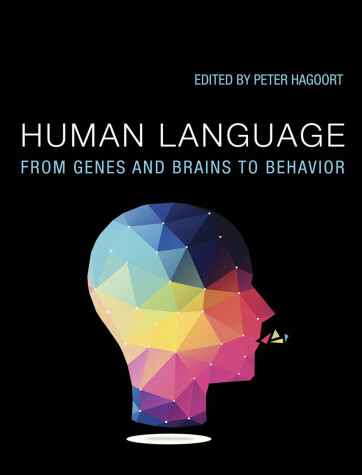A unique overview of the human language faculty at all levels of organization.Language is not only one of the most complex cognitive functions that we command, it is also the aspect of the mind that makes us uniquely human. Research suggests that the human brain exhibits a language readiness not found in the brains of other species. This volume brings together contributions from a range of fields to examine humans' language capacity from multiple perspectives, analyzing it at genetic, neurobiological, psychological, and linguistic levels.
In recent decades, advances in computational modeling, neuroimaging, and genetic sequencing have made possible new approaches to the study of language, and the contributors draw on these developments. The book examines cognitive architectures, investigating the functional organization of the major language skills; learning and development trajectories, summarizing the current understanding of the steps and neurocognitive mechanisms in language processing; evolutionary and other preconditions for communication by means of natural language; computational tools for modeling language; cognitive neuroscientific methods that allow observations of the human brain in action, including fMRI, EEG/MEG, and others; the neural infrastructure of language capacity; the genome's role in building and maintaining the language-ready brain; and insights from studying such language-relevant behaviors in nonhuman animals as birdsong and primate vocalization.
Section editors
Christian F. Beckmann, Carel ten Cate, Simon E. Fisher, Peter Hagoort, Evan Kidd, Stephen C. Levinson, James M. McQueen, Antje S. Meyer, David Poeppel, Caroline F. Rowland, Constance Scharff, Ivan Toni, Willem Zuidema
- ISBN10 0262042630
- ISBN13 9780262042635
- Publish Date 29 October 2019
- Publish Status Active
- Publish Country US
- Publisher MIT Press
- Imprint The MIT Press
- Format Hardcover
- Pages 752
- Language English
- URL https://penguinrandomhouse.com/books/isbn/9780262042635
